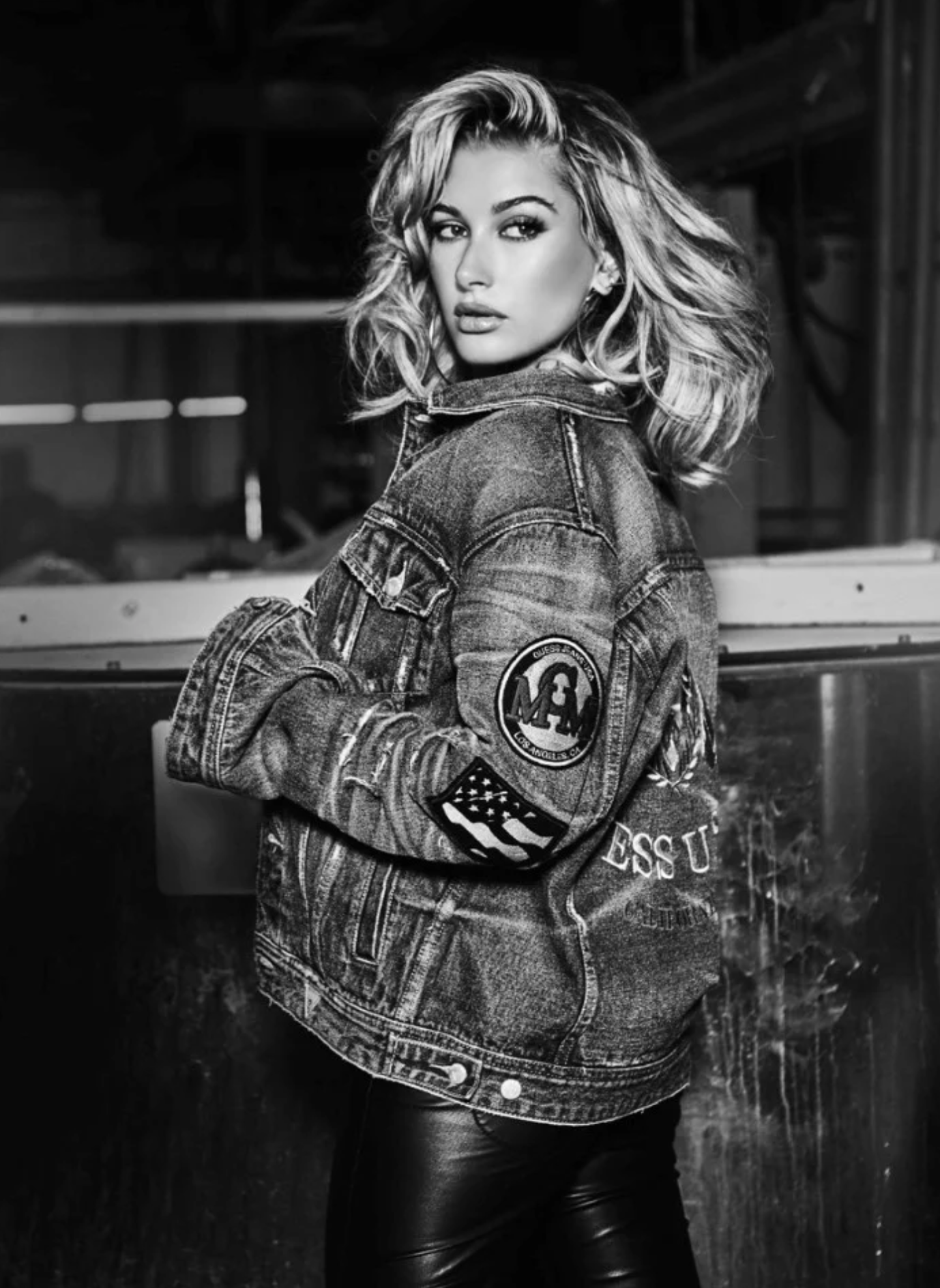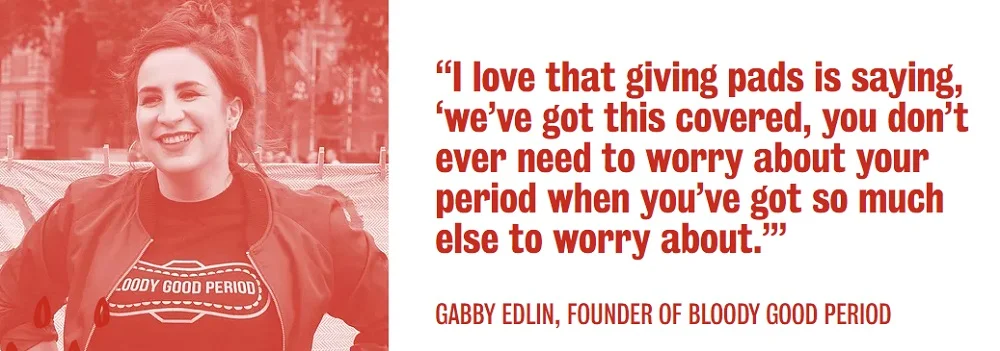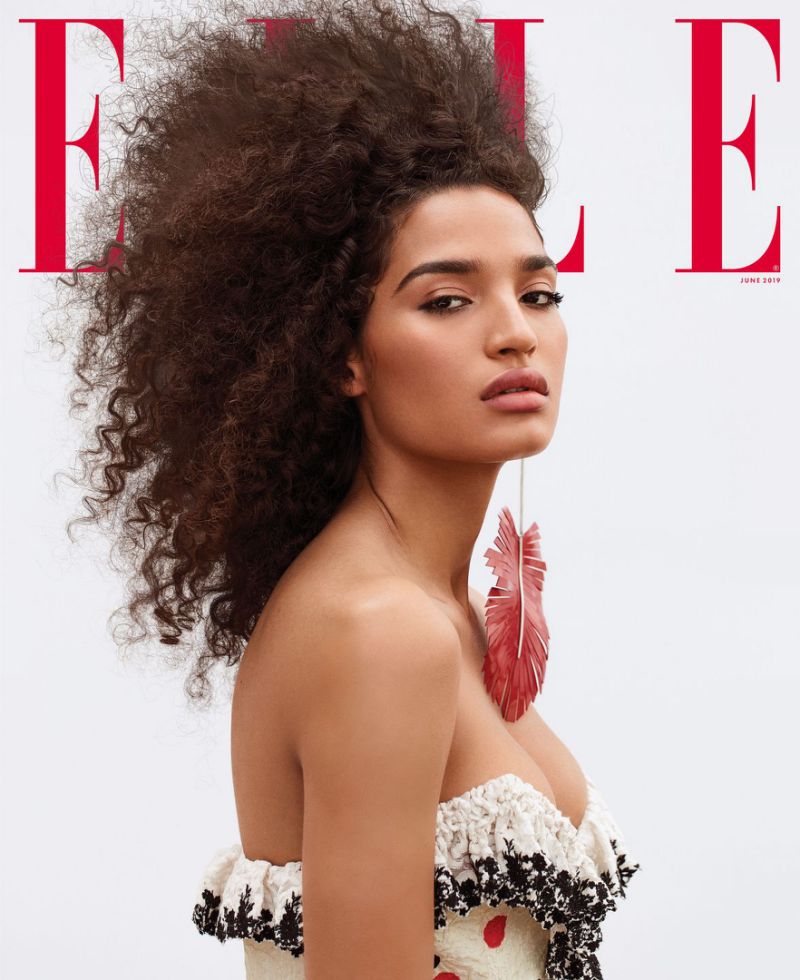Indya Moore Is First Trans Person To Cover ELLE US June 2019, Lensed By Zoey Grossman
/Indya Moore wears bustier dress, belt, both Louis Vuitton, lensed by Zoey Grossman.
Indya Moore is styled by Charles Varenne for images by Zoey Grossman for ELLE US June 2019. Moore is the first transgender person to cover the magazine. / Makeup by Vincent Oquendo ;hair by Hos Hounkpatin
{A word from Anne on language — which ELLE also addresses in Jada Yuan’s interview Indya Moore Just Wants To Be Free. Imagine Trumpsters navigating this paragraph in ELLE: “
A note on gender pronouns: Indya is nonbinary and prefers to use “they” and “them,” but is also navigating how that works in a society that has long oriented around cisgender or binary trans identities. Most people around Indya use “she,” which Indya says is fine to use throughout this story. See her Instagram post in April about this very topic. “
In almost 70 years, we can’t get media types and talking heads to stop saying guys for everything — even when multiple women have filled the post. US Atty Generals, for example. They remain ‘guys’, even though Loretta Lynch was US Attorney General in the Obama Administration and Janet Reno served for 8 years as Bill Clinton’s US Attorney General. Just yesterday, I heard guys, guys, guys when talking about good attorney generals — and that includes from a black woman. Language is power and men don’t give up power easily — unless they are enlightened, and conscious, which some men are. So good luck Indya. Note I do support genderless language and ripped into a well-known pundit so aggressively that he changed his language on a dime and hasn’t fallen off the wagon in a decade. It can be done.}
Indya Moore wears Saint Laurent by Anthony Vaccarello dress, belt, both Louis Vuitton, lensed by Zoey Grossman.
Indya Moore plays Angel, a sex worker longing for love on FX’s ‘Pose’, a 1980’s dance musical that explores intersecting aspect of New York life in Donald Trump’s “he who has the biggest bs campaign about his wealth wins — no matter how many times he goes to bankruptcy court. That would be six for the president of the United States The Golden Globe-nominated drama also features the largest recurring cast of LGBTQ actors ever for a scripted series
Indya Moore wears Valentino dress, lensed by Zoey Grossman.
Jada Yuan writes:
Even without an empowering TV narrative, Indya’s legion of fans likely would have found her. They are on her Twitter and Instagram (51K and 238K strong, respectively), thanking her for being forever a teacher, for doing the exhausting work of explaining her radical perspective that her sex organs have nothing to do with whether she can be considered a “biological woman.” Off set, she is on the ground, showing up at every premiere or award show that she can attend, representing an image of a proud trans woman of color, of Haitian, Dominican, and Puerto Rican descent.
Indya Moore wears Dior dress, panty, both Louis Vuitton, lensed by Zoey Grossman.
The revealing interview gets deeply personal between the two women. Indya spent $134 on her hormones, which is roughly the same as what she spends on Ubers every day to get her safely back to her mom’s place in the South Bronx, where she stays when not filming.
And Yuan spent $50 on her period last month, between boxes of tampons, pads, the clothes she bled through, and cabs home to change clothes. This leads to convo about the very real “pink tax” in America and how the two femmes are just girlfriends comparing hormonal experiences.
The worldwide reality that young girls leave school because they have no money for pads doesn’t enter the conversation, but AOC adds it. Thankfully, teenagers — that next destined-to-be-great. Parkland generation — are taking up the period poverty cause. Check out the Oscar-winning documentary and efforts to end period poverty, inspired by teens.
Indya Moore wears blouse, Michael Kors Collection, lensed by Zoey Grossman.
Indya was ostensibly born male and raised a Jehovah’s Witness, with a Puerto Rican teen mom and immigrant father from the Dominican Republc. When Indya started displaying behaviors her parents interpreted as feminine, they “overdisciplined” her, she says.
“Because I was assigned male at birth, they expected me to be masculine or to perform the way they thought young boys should perform. And I did not.” The more she expressed her feminine self, the harsher the punishments got. “They didn’t understand. They had never experienced what it was like to have a family member who was genderqueer.”
Indya’s mother Gloria was a nursing attendant at a New York Hospital, and she saw how trans patients were treated — or not. The remainder of Indya’s story is discussed in detail ELLE. Read on.
















